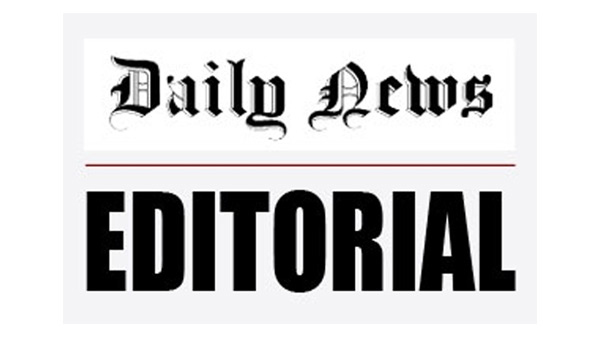Today is World Press Freedom Day. Coming shortly after May Day, Press Freedom Day as does May Day, seeks to ensure the rights of the underprivileged and the socially marginalized. There are no raucous rallies to celebrate press freedom, even though May Day is generally marked by exuberant good cheer. May 3 is reserved for reflection on the values of freedom of expression, and media freedom in particular.
Judging by how the Opposition in this country has been aiming broadsides at the Government for its handling of the pandemic, it can be said that media freedom here is very much alive and kicking. Though a greater sense of responsibility should be expected from Opposition ranks about airing views on the pandemic and the control measures adopted by this Government, it is clear that the political parties across the aisle from the Government benches cannot be so stridently critical — and at the same time claim that there is no press freedom in the country.
In India for instance, however acrimonious the relations may be between the Governing Party and the Opposition, there is always the certainty that the opposing political camps offer maximum support to the governing ranks when there is a crisis. That is what is happening in India now. The Parliamentary Opposition has been supporting the Government’s Covid control measures, as there is a collective sentiment that fighting the contagion is a national problem.
But, on World Press Freedom Day, it is a happy augur that the Opposition in this country feels free to relentlessly attack the Government on its Covid policy — even though it may not be morally justifiable. But the Government’s policy on that seems to be, “we disagree with what you say, but we will defend to the death your right to say it.”
That is quintessentially what press freedom is, and our detractors, especially those who raise hackles in Geneva on our human rights record, should take note. For those who say that this is an increasingly “militarized” country, exactly which militarized country, please tell us, offers this amount of media freedom for an Opposition to attack the Government?
So much for the frequent lament about militarization — an Opposition fiction, which ironically also is a sign that there is enough freedom of expression in this country to tell tall tales, and generally also to make a nuisance of yourself, be it from Opposition ranks, or from the NGO sector which often gives sustenance to yarns such as ‘militarization’.
It should be remembered that this is a country with a great tradition of media freedom. Even though there were phases in which terrorism and national security imperatives warranted some form of State sanctioned censorship, in the 70 plus years since Independence, our press has been overwhelmingly unfettered most of the time, and the few intervals in which some form of official censorship was imposed, have been so few and far between.
This year’s World Press Freedom day theme, incidentally, is “Information as a Public Good.” The general gist of it is that the public must have access to reliable information especially when people are awash with misinformation via social media and the Internet. The pandemic has also made the need for information accuracy more acutely felt. It is easy to see why the theme ‘Information as a Public Good” was selected this year when much anxiety has been generated due to the pandemic. A public good is defined as a commodity or service that is provided without profit to all members of a society, either by the Government or by a private individual/organization.
But people are not used to visualizing information as that type of commodity. They purchase information when they pay for their television connections, or when they purchase a newspaper. News dissemination is a lucrative business, backed up by millions of dollars or rupees in advertising.
So information as a public good can be seen more as an aspiration than reality. In social media, information can be considered free — but the devastating aspect of that is what’s free on these platforms is sometimes so toxic that it seems somewhat hilarious even to think of “information as a public good.”
Information will become a public good on social media when everybody who posts does so responsibly — and thinks of his or her role as that of conscientiously providing a “public service.” But we are so far away from that day, that it seems frankly rather pointless even to think about such a situation of utopian bliss.
On this World Press Freedom Day, what we can resolve is to keep being committed to the ideals. We can think of information as a public good, insofar as we keep our expectations realistic. It is hoped that today’s World Press Freedom Day will mark an occasion both for media practitioners and consumers of information, in which they could contemplate a society that uses media for the maximum possible benefit of the community amid all of the influences that seek to curtail the free dissemination of accurate and useful news and information.


